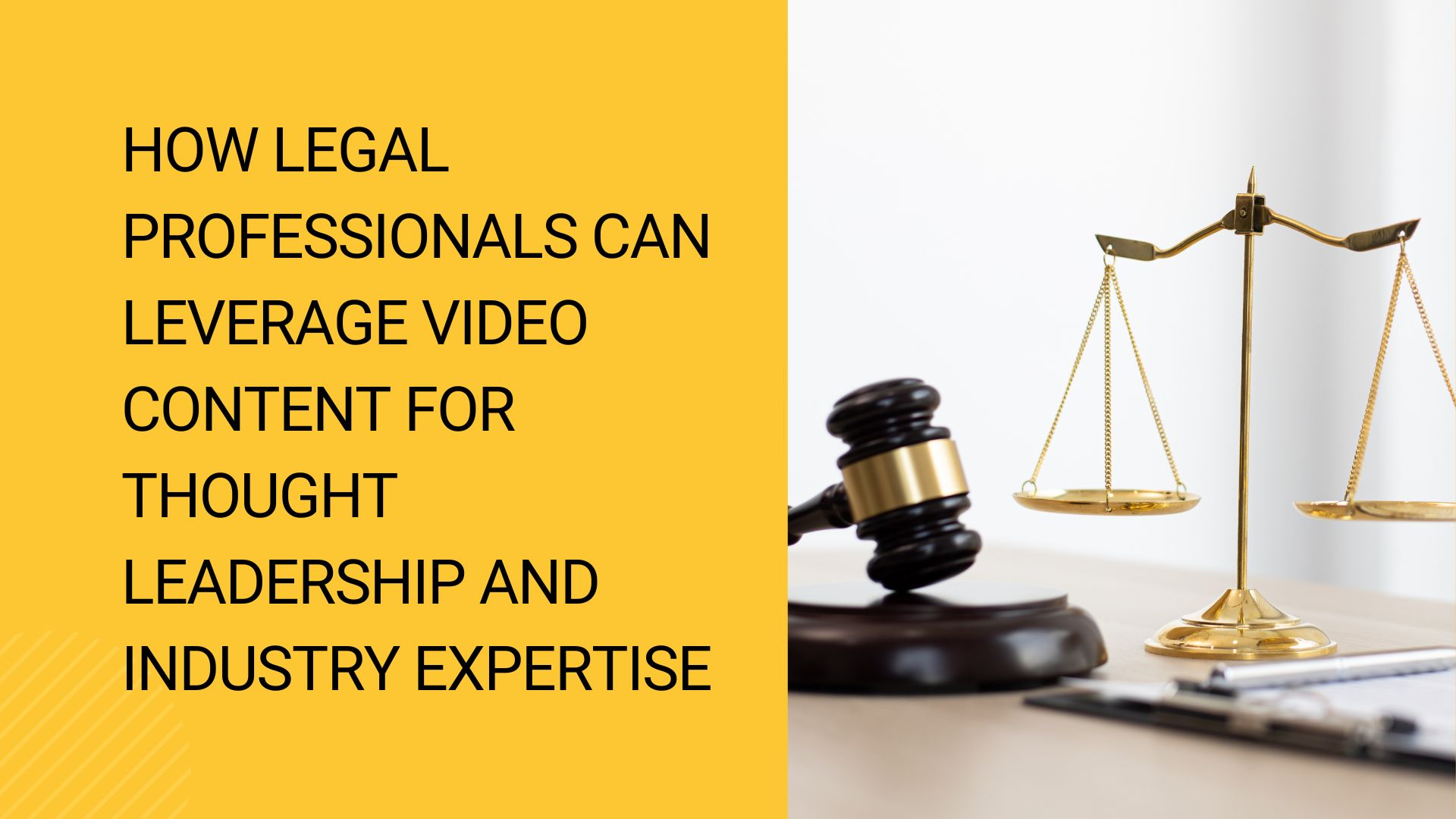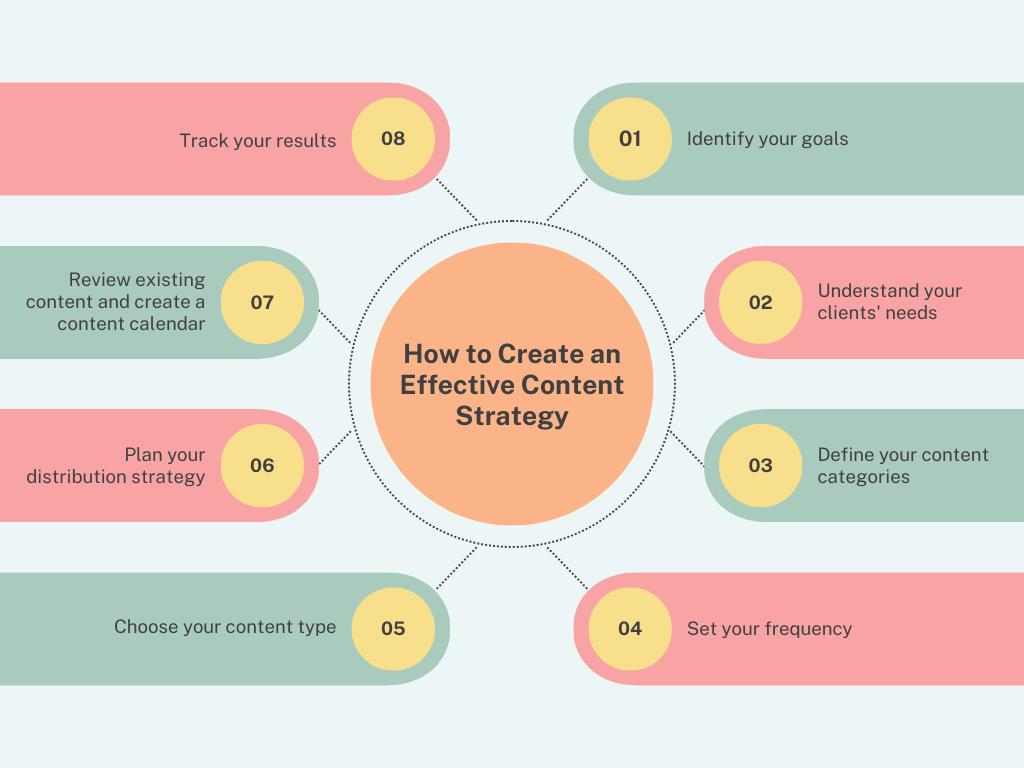- Home
- About us
- Our Services
-
-
- Sales & Marketing
- Video for Sales Marketing
- Video for Growing Businesses
- Brand Video Production Services
- Product Marketing Video Services
- Promotional Video Production Services
- How To Video Production Services
- Explainer video production services
- Digital Content Creation Services
- Commercial video production services
- Studio Hire in North Leeds, UK
- Sales & Marketing
-
-
-
Sales & Marketing
-
-
Employee Experience
-
-
- Blog
How legal professionals can leverage video content for thought leadership and industry expertise


In today’s fast-paced digital age, legal professionals are increasingly turning to video content to establish thought leadership and industry expertise. By leveraging the power of video, lawyers, judges, and other legal experts can showcase their knowledge, skills, and experience to a wider audience and position themselves as authorities in their respective fields. In this blog post, we will explore some practical examples, tips, strategies, and statistics for how legal professionals can leverage video content for thought leadership and industry expertise.
The Benefits of Video Content for Legal Professionals
Before we dive into specific strategies and tips for creating video content, let’s first examine the benefits of using video as a tool for thought leadership and industry expertise.
Increased Engagement: Video is a highly engaging and easily consumable format that can captivate audiences and hold their attention for longer periods. According to HubSpot, videos on landing pages can increase conversion rates by up to 80%.
Enhanced Branding: By creating compelling video content, legal professionals can enhance their personal and firm branding and establish themselves as experts in their respective fields.
Wider Reach: Video content has the potential to reach a wider audience than other forms of content, including social media, websites, and email campaigns. This can help legal professionals expand their reach and influence beyond their immediate networks.
Improved SEO: Videos can help boost search engine rankings and drive traffic to legal professionals’ websites. According to Moovly, pages with video content are 53 times more likely to rank on the first page of Google search results.
Now that we’ve established the benefits of video content for legal professionals, let’s explore some practical strategies and tips for leveraging this powerful tool.

Determine Your Target Audience and Goals
Before creating any video content, it’s important to determine your target audience and goals. Ask yourself: Who am I trying to reach with this content, and what do I want them to take away from it? Understanding your audience’s pain points, interests, and motivations will help you create content that resonates with them and achieves your goals.
For example, if you’re a criminal defense attorney, you might create videos that educate potential clients on their legal rights and the criminal justice system. If you’re a family law attorney, you might create videos that offer advice on navigating divorce or child custody proceedings.
Choose the Right Format for Your Content
There are many different types of video content that legal professionals can create, depending on their goals and target audience. Some popular formats include:
Q&A Videos: In these videos, legal professionals answer commonly asked questions from clients or the general public.
Case Study Videos: These videos showcase past cases and highlight legal professionals’ expertise and successes.
Educational Videos: These videos educate viewers on legal concepts or topics.
Webinar Videos: Legal professionals can record their webinars and repurpose them as video content for their website or social media channels.
Live Streaming Videos: Legal professionals can use platforms like Facebook Live, Instagram Live, or YouTube Live to stream events, seminars, or interviews in real-time.

Optimize Your Videos for SEO
To ensure that your videos reach the widest possible audience, it’s important to optimize them for search engines. Here are some tips for optimizing your video content for SEO:
Use descriptive titles and tags that include relevant keywords.
Include a transcript of the video on your website to make it more accessible to search engines and viewers.
Embed your video on your website and share it on social media channels.
Encourage viewers to share and comment on your videos to increase engagement and visibility.
Focus on Quality and Production Value
When it comes to video content, quality matters. Poorly produced videos can detract from the content and undermine the credibility of legal professionals. Here are some tips for creating high quality, professional-looking videos:
Use good lighting and sound equipment to ensure that your video is clear and easy to hear.
Invest in a good camera and tripod to ensure that your footage is stable and visually appealing.
Use a clear and concise script to keep your content on-topic and engaging.
Consider hiring a professional video production company to ensure that your content looks and sounds professional.
Promote Your Videos Strategically
Creating great video content is only half the battle. To truly leverage your videos for thought leadership and industry expertise, you need to promote them strategically. Here are some tips for promoting your videos effectively:
Share your videos on social media platforms like LinkedIn, Facebook, and Twitter.
Embed your videos on your website and blog to increase visibility and engagement.
Include links to your videos in email newsletters and other marketing materials.
Collaborate with other legal professionals and industry leaders to cross-promote each other’s videos.
Use paid advertising on social media platforms to reach a wider audience.
Here are 10 advantages of how video can help legal professionals establish thought leadership and industry expertise:
Enhance Credibility: Video content can help legal professionals establish themselves as credible authorities in their field, showcasing their expertise, knowledge, and experience.
Connect with Clients: Video content can help legal professionals connect with clients on a deeper level by providing a more personal and engaging experience than traditional forms of communication.
Showcase Expertise: Video content can showcase legal professionals’ expertise, highlighting their unique insights and perspectives on legal issues.
Boost Engagement: Video content can help legal professionals boost engagement with their audience, as videos are more likely to be shared and consumed than other forms of content.
Demonstrate Personality: Video content can help legal professionals demonstrate their personality, making them more relatable and approachable to clients and prospects.
Stand Out in a Crowded Market: Video content can help legal professionals stand out in a crowded market, differentiating themselves from competitors and attracting new business.
Repurpose Content: Video content can be repurposed across multiple platforms, including social media, websites, and email marketing campaigns, maximizing its reach and impact.
Build Trust: Video content can help legal professionals build trust with their audience, demonstrating their commitment to transparency and authenticity.
Stay Top of Mind: Video content can help legal professionals stay top of mind with clients and prospects, reminding them of their expertise and services.
Improve Search Engine Rankings: Video content can help legal professionals improve their search engine rankings, driving more traffic to their website and increasing their visibility among potential clients.
Conclusion
Video content can be a powerful tool for legal professionals who want to establish thought leadership and industry expertise. By creating high-quality, engaging video content, legal professionals can reach a wider audience, enhance their branding, and position themselves as experts in their respective fields. By following the tips and strategies outlined in this blog post, legal professionals can create video content that engages and informs their target audience, ultimately driving more leads and conversions for their practice.
